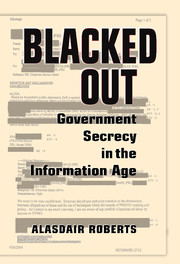4 - Message Discipline
Published online by Cambridge University Press: 05 June 2012
Summary
Cultural change in Whitehall is exactly like turning round the classic ocean liner. Opening up Whitehall and introducing freedom of information is a titanic task.
– Charles Falconer, UK Secretary of State for Constitutional Affairs, 2004.In the United Kingdom, debate about the way in which the Labour government of Prime Minister Tony Blair had managed intelligence about the threat posed by Iraq quickly took a tragic turn. In May 2003, the British Broadcasting Corporation featured an interview with journalist Andrew Gilligan in which he alleged, based on information from an unnamed source, that the government's pre-war intelligence brief had been “sexed up” with false information. The Blair government reacted furiously against the allegation. When the country's top WMD scientist, David Kelly, revealed to his superiors that he might be Gilligan's source but that Gilligan had misconstrued his statements, senior Blair advisors effectively leaked Kelly's name to the media. After a week at the center of an intense controversy, Kelly committed suicide. Prime Minister Blair appointed a special investigation – the Hutton Inquiry – to examine the events leading to Kelly's death.
In a country notorious for official secrecy, the Hutton Inquiry was remarkable. Internal government documents – memoranda, e-mail, diaries – written with extraordinary candor only weeks before were not only handed to the inquiry, they were posted on the internet for universal inspection.
- Type
- Chapter
- Information
- Blacked OutGovernment Secrecy in the Information Age, pp. 82 - 106Publisher: Cambridge University PressPrint publication year: 2006



